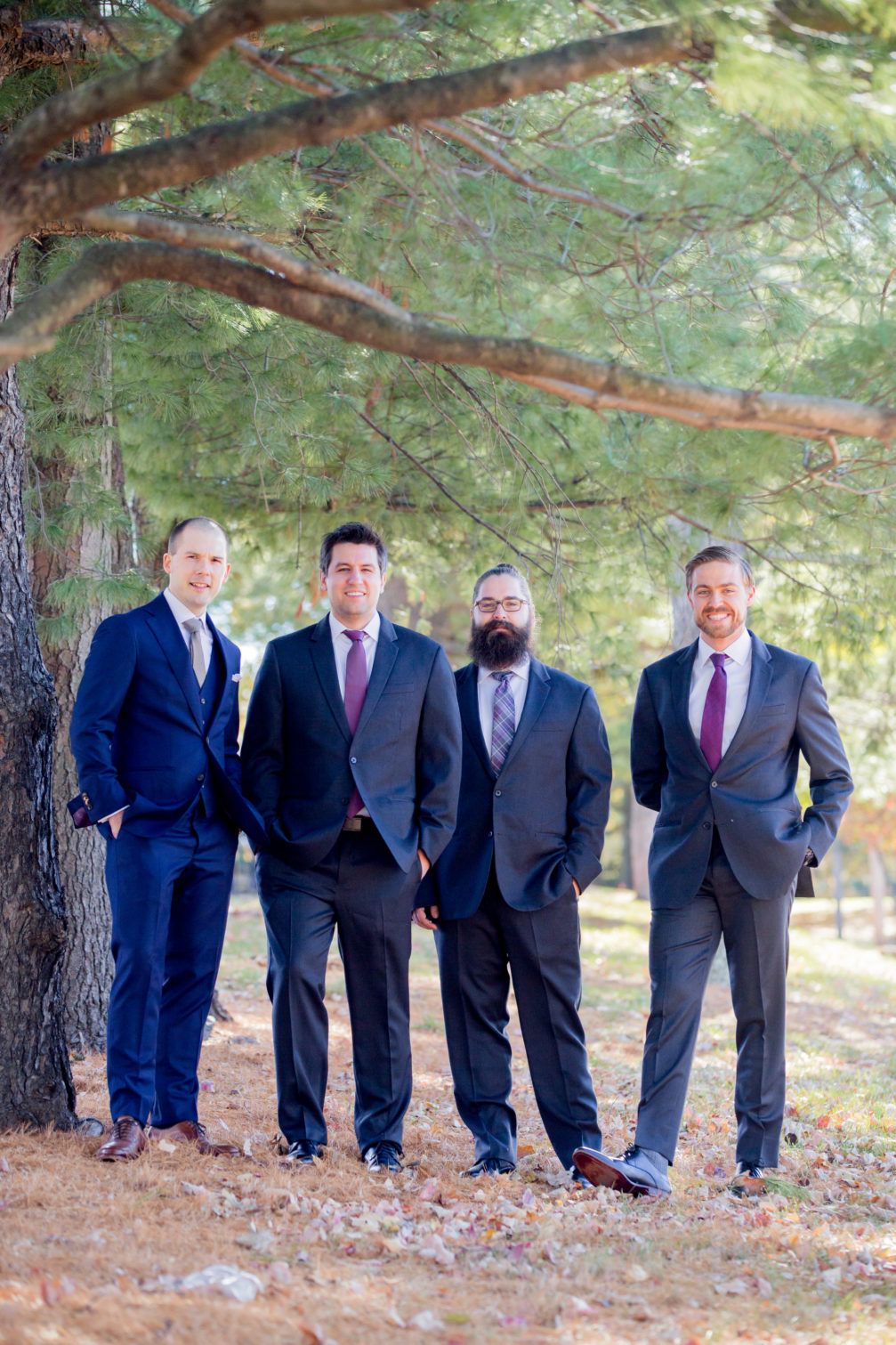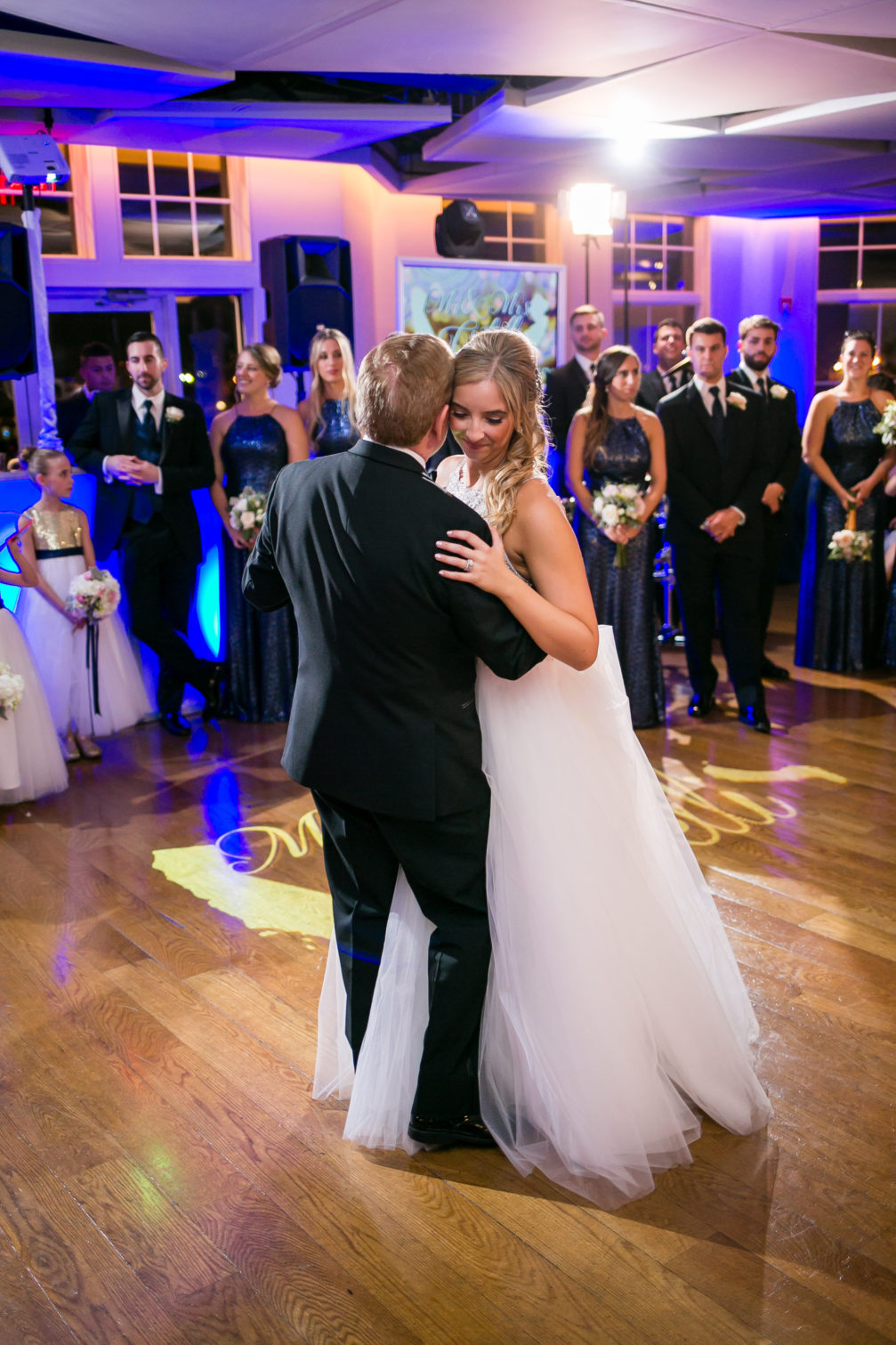Planning a wedding is full of nothing but decisions. Deciding where you want to get married, what you’ll wear, and who your vendors will be. A decision that needs to be made before all that other stuff? Your guest list.
You can’t pick a wedding venue if you don’t know your guest count. You can always guess or have a range in mind, but it’s never a decision made by just one person. As a wedding planner, I’ve seen my couples be surprised about the people their fiance wanted to invite. Then, if it’s suddenly “OK” to invite those people, the other half of the engaged couple just thought of 30 more people to invite.
If your parents or anyone else is financially contributing to the wedding, they’ll likely have an opinion as well. Actually, parents tend to have an opinion regardless of financial contribution so, never mind.
That last part was a joke, no offense mom and dad.
If you’re engaged and getting ready to plan your wedding, read on for the complete guide to inviting people to your wedding.
Crunching Numbers
The average wedding guest count sits between 150-200 people. Anything under 125 is considered “small” and under 75 is considered “intimate”. Guest counts over 200 are considered “big weddings” up until about 500. At that point, it’s just considered ridiculous.
Kidding, kidding.
Engaged couples generally have an idea about how many people they want at their wedding. Even though a specific venue might not be known right away, the type of venue has also probably been decided. When the venue search begins, no matter the type of venue, every couple will be asked the same question:
“How many guests?”
Since venue selection is the first thing to do in the wedding planning process, it’s really important to get a handle on guest count. Many venues will have a maximum amount of guests they can handle, but plenty of them also have a minimum. A maximum guest count really doesn’t need much explanation; you can only fit so many people in the space before the fire marshal busts up your party.
But many engaged couples are surprised by the minimum guest count requirement…Like everything else wedding related, the minimum guest count comes down to money. How much money does the venue and/or caterer need to cover their costs and make a profit for whatever time you would be using the space?
You could be given what’s called a “food and beverage minimum” and that number will start around the $10,000 mark and go up to whatever it goes up to. You’ll then be given a more ala carte style menu to choose from and you can pick whatever you want as long as you meet the minimum.
In the other instance, the venue will give you the minimum guest count and the cost per person. The cost per person will include particular food and sometimes alcohol selections. Multiple those two numbers together and you’ll find out what their “food and beverage minimum” is, which is the number they need to cover costs and make a profit for the time you’re using the space.
All that fun and exciting math aside, the guest count minimum can be presented in those two ways, if one exists at the wedding venues you visit. This is important because keeping your guest count under average could also keep you out of certain venue spaces. That is, unless you’re willing to spend extra money to cover the cost, but that’s for a different blog on a different day.
This is why it’s really important to know that guest count before you even start considering wedding venues.

Crystal Ball Method
My couples always tell me their guest count in this manner:
“We invited this many people, but we only expect this many people to show up.”
And then we laugh and laugh and laugh…because I need everyone to stop trying to predict the future. Guests are more unpredictable than the weather, and the ones you think won’t show up will RSVP with plus 5. It’s super important to plan and budget for the number of people you are actually inviting.
This means when you’re discussing potential guests and guest counts with anyone else adding to the list that you don’t pencil anyone in. In other words, if you’re trying to stay within a certain range and go over with a handful of people, don’t just assume that they probably won’t come.
Who’s Who
Whether or not you are paying for some of the wedding, all of the wedding, or none of the wedding (and by “you” I mean the engaged couple), parents and relatives generally want to be heard on this issue. I tell all of the couples I plan with that the second someone else writes out a check, they now have bought the right to voice their opinion. Best way to do what you want? Accept zero donations.
That’s not always possible and even when it is, at the risk of beating a dead horse: parents will have an opinion and want to be heard on this issue. You can keep it black and white and allow them to have the percentage of their guest list be equivalent to the percentage they are paying. But if they’re paying for more than half, you probably don’t want to do that.
Just like the wedding budget conversation is a difficult one to have (but you better have it before you start planning) this is another talk that isn’t always easy. Speak with your parents or any relatives that are financially contributing to the wedding before you start looking at wedding venues. Find out what their guest list wishes are and communicate your ideal guest count as well.
Once you have figured out how many guests each person gets to invite…

The Building Blocks
The best way to start putting together a wedding guest list, is to start writing names without looking. No consulting your contact list or Facebook friends list. These are names that are obvious and in your mind.
The rules about inviting family members will be different for every engaged couple. If your parents are making their own lists, it’s likely they will put family members on their list. Discuss that first before you start stacking your list with every friend you’ve known since first grade though.
When it comes to family members, important factors to consider are:
- age
- location
- relation
For age, if you are considering a no children wedding, take a look at your family members with kids. Will they come without them? Will they have to get a babysitter in order to attend or are the kids old enough to stay home on their own? Will they be offended if their kids aren’t invited?
I’m not an advocate of inviting people just to not offend them, and you can get yourself in a lot of trouble with a big guest list if you go that route. If you have a “no children” rule with your wedding guest list, it’s best to apply it to everyone and not just a select few.
Location also needs to be considered when deciding who to invite to your wedding. Not just the location of your wedding, but the location of your guests as well. If your wedding is a destination one, the guest count will likely be much smaller, as it should be. But also consider the location of your guests in relation to your wedding. Do you really need to send an invitation to your cousins in Minnesota just because? Remember, you can’t predict if someone will decline the invitation, so don’t send those types of polite invitations unless you’re prepared for them to actually attend.
The relation to the guest is important to consider on its own, as well as in conjunction with age and location. Immediate family members, assuming you’re on good terms, would be invited to your wedding. If it’s your sister in Minnesota and not your cousin, you probably should invite her. Second cousin twice removed you haven’t seen since the last wedding but that lives in the same area code? Well…
Again, I don’t believe you should invite someone just to not upset them, but if it’s going to cause you grief in the long run, you might want to consider it.

Making the Cut
Once the guest list is in its first draft form, you might want to cut some people for one reason or another. While you’re not going to take the obvious names off the list, it’s not always easy to figure out who to remove.
Moms and dads are going to hate me for this one, but I’m recommending to start with their lists first. How many work friends are on these lists? Is it a case of invite one, invite all 50 from the office? Does it have to be? Engaged couples should take a look at their work list too and trim or remove if possible.
Friends on the list that no one has seen in like forever? Anyone on the list that hasn’t been to your house or out for happy hour in years? People that you’re sure wouldn’t invite you to their wedding except out of total obligation and even then, maybe not? Anyone on the list that always RSVPs “no” or cancels last minute? Cut all of these people.
If you have people on your wedding guest list getting that “polite” invitation…you know, cousin Bobby you saw at the family reunion 12 years ago? Those invitations can be the next off the list.
Fall down the rabbit hole of “well, if we invite this person then we have to invite that person”? Remove both if possible. They can complain to each other.
I know. I’m ruthless. But weddings are expensive and you deserve to have the people there that you actually want to see and spend time with. If your college roommate wanted an invite then she should’ve stayed in touch, amiright?

The A List
So you’re able to group everyone on the invite list, but you just can’t cut anyone? I’m often asked my thoughts about the A List and the B List as an option for those engaged couples that just can’t commit to giving certain guests the ax.
Look, truthfully, I think it’s shady AF. I think it’s super tacky. Would I do it? Not a chance.
But…
I understand why some couples feel they have no choice and that it’s the lesser of two evils; that second evil being the wrath of anyone they didn’t invite or the wrath of their parents.
If you’re going to do this, you have to factor in the extra time you will need. Generally, I make the RSVP date around a month and change before the wedding date. The formula for deciding that date is complicated, but you can contact me about my wedding planning e-book release date, as it will be in there (along with plenty of other wedding planning tips and tricks)
Assuming you send your invitations out 3-4 weeks prior to your RSVP date, you will need to send your first round out even sooner than that. As you receive declines, start sending out the second round of invitations.
Do you need different RSVP dates for separate sets of invitations? You bet you do. Otherwise, that first round of people doesn’t get back to you until the RSVP date and you’re not sending out that second round until the RSVP date has passed. Plus, it’s totally acceptable for the A List guests to feel you sent out invitations a little early, but if B List guests think they received theirs late, then they’ll know there are two lists.
This isn’t something I promote, but if you do find yourself in this situation, be sure no one else knows about it. Take extreme care when sending out invitations to make sure that someone from the A List isn’t going to communicate with anyone on the B List. You also should avoid announcing that your invitations went out on any social media.

And A Guest
It has always been and will always be a debate whether or not to invite everyone with a guest. I have had the same opinion my entire life and there is nothing anyone can say to change it:
Every single guest gets invited with a plus one.
Yeah, I hear the arguments all of the time. You don’t want people you don’t know at your wedding; you don’t want your friends bringing someone they’re dating unless it’s a serious relationship; your friends all know each other so they shouldn’t have to bring anyone; no one under 25 is allowed to have a guest; you can invite more people if some people don’t bring a guest; you don’t want to pay for randoms.
Yeah. I’ve heard. I still don’t care.
The wedding isn’t just for the couple to enjoy. That’s why there’s an open bar. That’s also why you should invite your guests with a guest. You can’t throw a party, ask for presents and then control the situation that your guests are in by dictating they have to arrive alone.
You don’t get to decide the terms of a “serious relationship”. Together for years but not living together? Living together but not married? Everyone’s definition is different and that’s why it’s irrelevant.
And even if all of your friends do know each other and have been going on trips to Cancun together for the past 97 years, that doesn’t mean they all want to sit at a table with each other and without a date. Give them the choice to come alone, but don’t force them to decide between riding solo or staying home.
I know, I know, weddings are expensive…see above where I gave guidelines about whom to cut from your guest list. Sorry not sorry.










